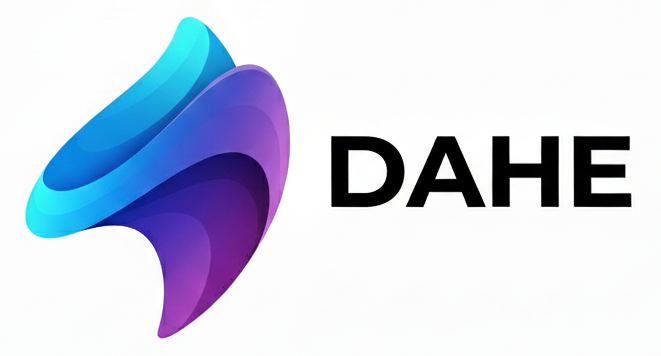[ad_1]
# Blogging: A Comprehensive Guide to Building a Successful Blog
Have you ever thought about starting a blog but wondered where to begin? Whether you’re a seasoned writer or just starting, blogging can be an effective way to share your thoughts, experiences, and expertise with the world. In this comprehensive guide, we’ll cover everything you need to know about blogging, from the basic essentials of getting started to advanced techniques for building a successful blog that attracts thousands of readers every month.
## What is Blogging?
Blogging is the act of writing and publishing content on the internet. A blog can cover any topic, from traveling the world to painting techniques or sharing recipes and fashion tips. Bloggers create posts that provide insights, opinions, or how-to guides. Blogging is an excellent way to express yourself, connect with like-minded people, and even make a profit from your content.
## The Benefits of Blogging
Blogging has many advantages, including:
### 1. Build an Audience
Blogging allows you to connect with other people interested in your topic. Over time, you can grow your readership, cultivate a following, and interact with your audience.
### 2. Establish Yourself as an Expert
If you’re passionate and knowledgeable about a particular subject, blogging can help you establish yourself as an expert in that area.
### 3. Make Money
Blogging is an excellent way to earn money online. You can develop an income stream by selling products or services or by displaying ads on your site.
### 4. Improve Your Writing Skills
Whether you’re an experienced writer or just starting, blogging is an excellent way to improve your writing skills through practice and a growing audience.
### 5. Challenge Yourself
Blogging requires more than just writing. You learn new skills, such as creating compelling content, designing graphics, editing videos and photos, and marketing your blog.
## How to Start a Blog
Starting a blog might seem intimidating, but it’s straightforward. Follow these simple steps:
### 1. Determine Your Niche
Consider a niche of expertise you have, where you are competent, have experience, or are passionate about. Your niche should be specific to capture a particular market’s attention and broad enough to provide you with a steady stream of topics to write about.
### 2. Choose a Platform
Decide which platform will work best to host your blog. For instance, WordPress is the most popular platform for blogs worldwide since it offers a wide range of templates, plugins, and customization options. Other options include Squarespace, Wix, Weebly, and Blogger, which are simple to use but offer less flexibility.
### 3. Pick a Name and Domain
Select a memorable name for your blog. Keep it short and straightforward and related to your blog’s content. Ensure the domain name reflects the niche you want to target. Purchasing a domain name from a provider such as GoDaddy can also help register your domain name.
### 4. Choose a Template and Customize Your Blog
Choose a template that resonates with your blogging niche. Then customize the appearance of the template using design settings, logos, and post formats, among others. There is always a wide range of options available on your blogging platform.
### 5. Start Writing and Posting Content
Begin your new blogging journey by creating your first post to introduce your blog’s purpose to your audience. Write your content in a conversational style, add visuals like photos, graphs, and videos, and try to make your post relatable. Always tailor your content in an SEO friendly way to maximize search engine traffic.
## Blogging Best Practices to Create Engaging Blog Content
### 1. Know Your Audience
Before creating any blog content, make sure you have identified your audience. Understanding who your readers are, what challenges they face, and what interests them gives you insights into the kind of writing, format, and style of presentation to use to capture their attention.
### 2. Create an Attention-Grabbing Headline
Your headline is the first thing people will notice before reading your piece. Make sure your headline is catchy, short, and related to the topic. Use power words that create emotions and convey curiosity to urge potential readers to click through.
### 3. Focus on Your Content’s Structure and Tone
Your blog post should be structured to guide readers through an easy-to-follow format. Use short paragraphs, subheadings, and bullet points to break the content into smaller pieces. Ensure your tone is conversational and relatable, using the same language and voice your readers use.
### 4. Engage Your Readers through Visuals
Integrate visual elements into your blog to engage your reader. Consider using infographics, images, graphics, and videos to represent information in an understandable way. This helps keep the readers engaged, thus increasing the blog’s user’s dwell time.
### 5. Use Call to Action
End your blog with a question, offer, or call-to-action that prompts your readers to engage with your content. Ask them to share their thoughts on the subject, sign up for a mailing list, or sign up for a product or services.
## Advanced Blogging Techniques
### 1. Search Engine Optimization (SEO)
SEO is the practice of optimizing your blog’s content using techniques that improve search engine rankings, like keyword research, link building, and meta-data optimization. This helps drive more traffic to your blog and improve your ranking on search engines.
### 2. Monetization Techniques
There are several ways to monetize your blog, including affiliate programs, display advertising, sponsored posts, and selling products. You can evaluate your blogging niche and plan accordingly for whichever monetization method that fits your ideas.
### 3. Guest Blogging
Contributing to other blogs as a guest writer is a fantastic way to get yourself and your blog on the map. By writing articles for other blogs, you get quality backlinks that boost your SEO ranking and gives you exposure to different audiences.
### 4. Networking and Building Relationships
Networking is essential to increasing your readership and making a profit from your blog. Reach out and build relationships with other bloggers and advertisers to promote your work.
### 5. Analyze Your Blog’s Performance
Testing and analyzing your blog’s performance is key to achieving long-term success. Use analytics tools to track metrics like clicks, page views, and the engagement rate to improve your content and make informed decisions regarding your blog.
## Blogging FAQs
### 1. Can I Start a Blog for Free?
Yes, several platforms provide free blog hosting. Nonetheless, it’s a good idea to invest in web hosting and your domain name to guarantee more security and flexibility.
### 2. How Often Do I Need to Post Content on My Blog?
There is no golden rule for blog content frequency, but it’s essential to have a posting schedule to remain relevant and grow your followers. Experiment with different frequencies and monitor your performance to find which posting frequency works best for you.
### 3. How Long Should My Blog Post Be?
It ultimately depends on your content strategy. On average, most blog posts are around 1000-1500 words. Ensure that each sentence and paragraph in your post contributes to the overall message, and keep your blog post informative, engaging, and concise, as possible.
### 4. How Can I Promote My Blog?
You can use social media, online communities, and produce guest posts to promote your blog content. Additionally, you can use paid marketing, email lists.s, forums, and pay-per-click advertising.
### 5. How Can I Make Money from Blogging?
There are several ways to make money from blogging, including affiliate marketing, sponsored content, advertising, and creating digital products.
### 6. Is Blogging Still Relevant Today?
Yes, blogging is still one of the most effective ways of building an audience and growing your business. As the online market continues to grow and evolve, blogging remains a practical tool for creating quality content and connecting with a broader audience.
## Conclusion
Whether you’re a novice or an experienced blogger, the tips and techniques presented in this guide offer valuable insights on achieving success with your blog. Blogging can be challenging, but with a practical strategy, a dedication to quality content, and consistent efforts, your blog can become a valuable resource for your readers and a source of income. Remember, success with blogging takes time, dedication, creativity, and hard work. So, go ahead, start blogging today!
This comprehensive guide covers everything you need to know about blogging, starting from the basics of getting started to advanced techniques for building a successful blog that attracts thousands of readers every month. Topics include the benefits of blogging, how to start a blog, best practices for creating engaging blog content, and advanced blogging techniques such as Search Engine Optimization (SEO), monetization techniques, guest blogging, networking, and analyzing your blog’s performance, among others. The guide also provides answers to frequently asked questions about blogging, including how to promote your blog, how often to post content, and how to make money from blogging.
#Blogging #Important
[ad_2]




Leave a Reply